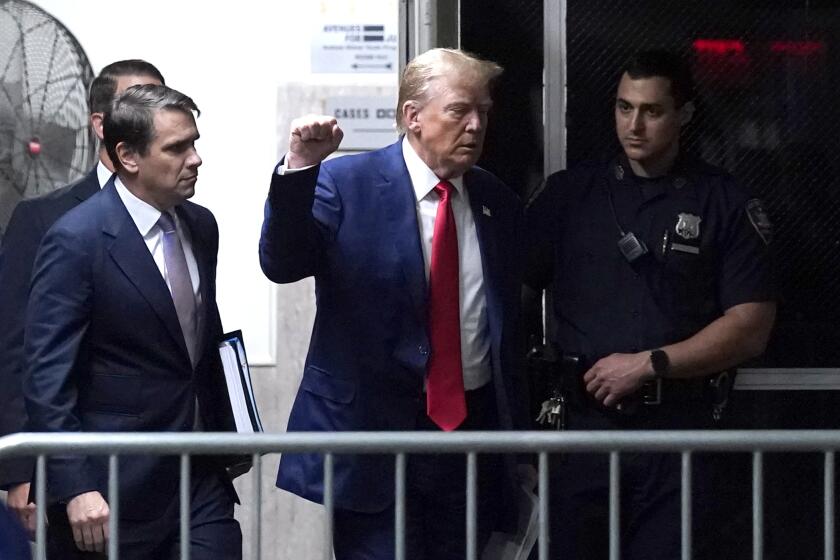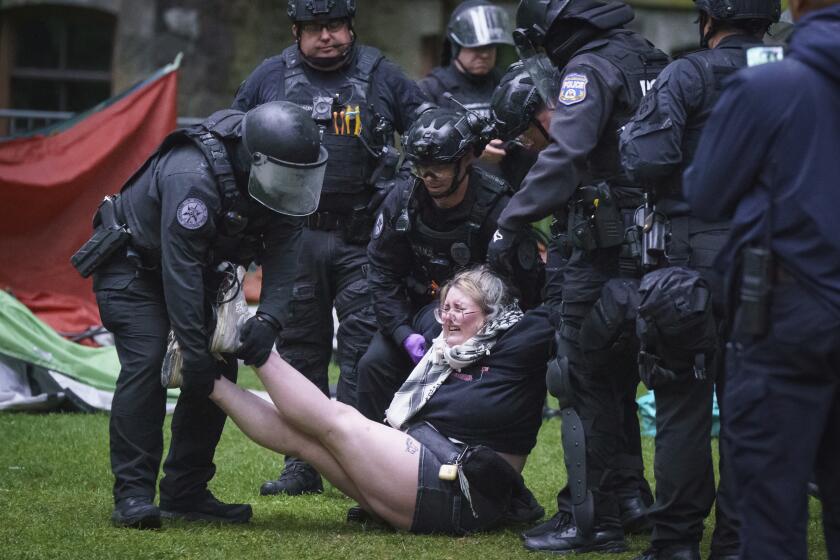Beijing, Taiwan Offer Hope for New Talks
Tensions between mainland China and Taiwan appeared to ease Friday as officials on both sides expressed a willingness to be flexible along with hopes for a resumption of negotiations.
With the transfer of power in Taiwan complete after President Chen Shui-bian’s inauguration last Saturday, the focus on both sides shifted back to implementing policies and searching for consensus.
This week, Chinese officials in charge of policy toward Taiwan acknowledged the domestic political pressures on Chen that have kept him from accepting Beijing’s “one-China” principle. They emphasized that Taiwan’s leaders could interpret the principle in their own way as a precondition for talks.
So far, China’s propaganda machine has refrained from targeting Chen with the personal insults--such as “scum of the nation”--heaped on both his vice president, Annette Lu, and his predecessor, Lee Teng-hui.
“There are signs that relations are easing on both sides of the strait,” Taiwanese Premier Tang Fei said Friday on television.
In Beijing, Vice Premier Qian Qichen, who has helped formulate policy toward Taiwan, said China sought to “solve the Taiwan question through dialogue, negotiations and exchange,” according to state-run television.
Mainland China and Taiwan have remained on hostile terms since the end of China’s civil war in 1949. China says it wants peaceful reunification with Taiwan but has threatened war if the island declares independence.
A U.S. official, speaking on condition of anonymity, told reporters in Beijing that high-ranking officers in the People’s Liberation Army with whom he had met expressed a desire for a peaceful resolution of the Taiwan issue. While the remarks were not a departure from Beijing’s policy, they contrasted with the strident rhetoric often heard from China’s military.
“It looks like there’s room for dialogue to start,” the U.S. official said.
In Taipei, the island’s capital, Shi Hwei-yow, vice chairman of Taiwan’s semiofficial Straits Exchange Foundation and a key negotiator with China, said Friday that mainland envoy Wang Daohan might visit the island this fall.
Beijing’s softened tone seems to reflect patience more than satisfaction with the performance of the new Taiwanese president.
Earlier this week, mainland officials dismissed conciliatory words in Chen’s inauguration speech as “insincere” and “evasive.” They also scoffed at his pledge not to declare independence unless attacked by China.
“We joke that it’s like saying, ‘I won’t commit any crimes unless your laws punish me,’ ” said Xin Qi, a researcher at the China Center for Peace and Development Studies.
Xin said he saw no substantive change in Chen’s traditionally pro-independence views but expressed hope that Taiwan’s bureaucracy, still dominated by the Nationalist Party that lost the presidency to Chen in March’s election, would be easier to work with.
Despite the display of flexibility toward Chen, Beijing took an indirect and unexpected swipe at him by cracking down on a Taiwanese pop star. A-Mei, idol of Chinese teeny-boppers worldwide, sang the national anthem at Chen’s inauguration.
After A-Mei’s performance, Chinese propaganda officials banned her from traveling to the mainland and pulled her soft-drink advertisements from state-run television.
More to Read
Start your day right
Sign up for Essential California for news, features and recommendations from the L.A. Times and beyond in your inbox six days a week.
You may occasionally receive promotional content from the Los Angeles Times.






